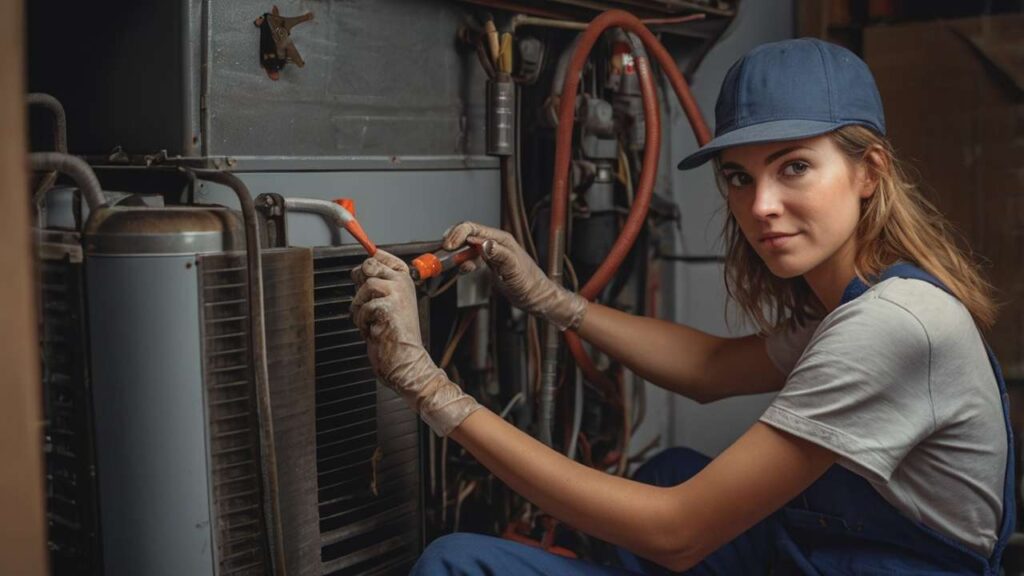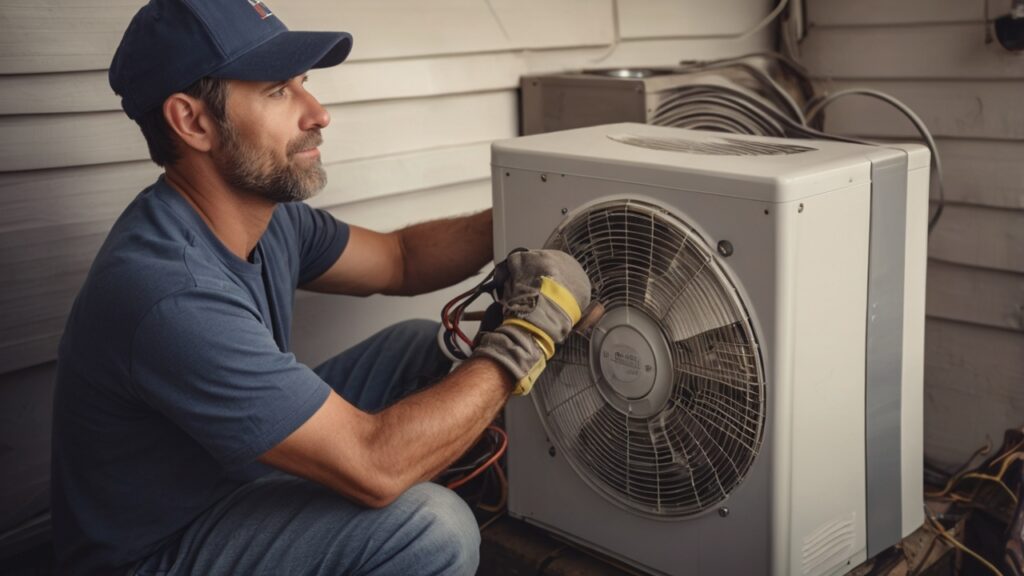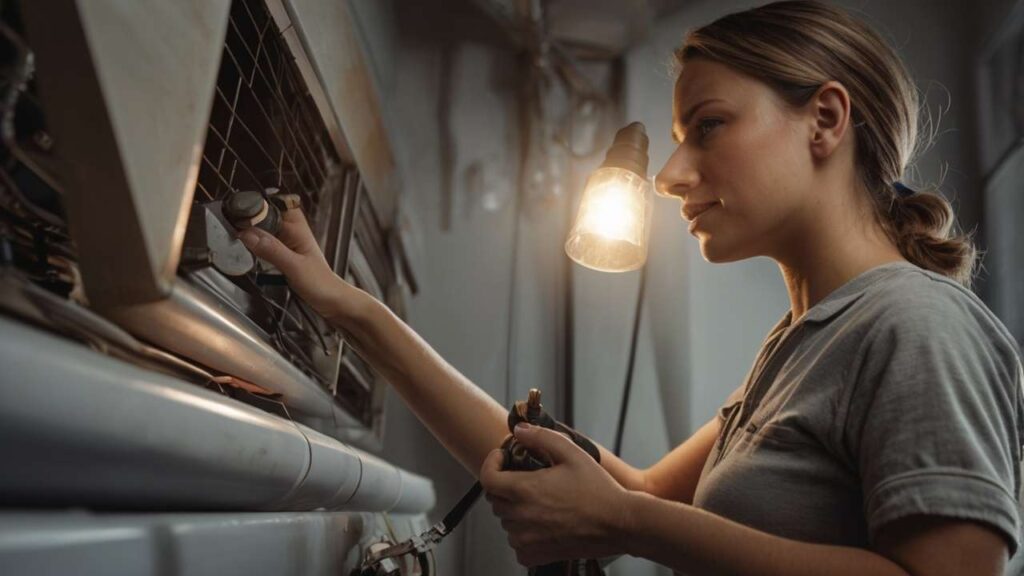If you’ve ever sat in your living room during a scorching summer in North Carolina, you probably know that an HVAC system isn’t just about comfort—it’s survival. Preventive HVAC maintenance is often overlooked, but skipping it leads to higher bills, unexpected breakdowns, and sometimes even safety hazards.
Many homeowners wonder how often does HVAC need to be serviced and if the annual AC service is really worth the cost. The short answer: yes, and then some. Preventive HVAC maintenance is more than just a filter change; it’s about ensuring your system runs efficiently, improving indoor air quality, and avoiding those dreaded 2 AM breakdown calls.
I’ll be honest—I used to think “eh, once it’s running, why bother?” But after watching a neighbor spend over $4,000 on a compressor replacement just because they ignored a basic HVAC tune-up frequency, I became a believer. The reality is simple: routine service saves money, keeps your family breathing cleaner air, and makes sure your home stays a safe place year-round.
Why Preventive HVAC Maintenance Matters More Than You Think
The phrase “don’t delay” couldn’t be truer here. Ignoring small issues costs more in the long run. A loose belt today can turn into a burned-out motor tomorrow. In fact, Don’t Delay: Why Ignoring Small HVAC Issues Costs You More in the Long Run dives deeper into how tiny details snowball into major expenses.
A trusted HVAC technician doesn’t just “look at it”—they bring tools, gauges, cleaning supplies, and knowledge that you and I don’t. I once saw a pro pull out a digital refrigerant gauge that looked more like a space gadget than a household tool. They measured airflow, refrigerant pressure, and even checked for tiny leaks you can’t see. That’s expertise you can’t DIY with a YouTube video.
Preventive HVAC maintenance is also directly tied to reducing energy bills. According to experts from the U.S. Department of Energy, proper upkeep can improve efficiency by up to 30%. That means less money flying out the window each month.
How Often Does HVAC Need to Be Serviced?
There’s a golden rule in the industry: at least once a year, ideally twice. That’s the standard HVAC tune-up frequency recommended by almost every trusted professional.
- Annual AC service: Before summer, to make sure your cooling system can handle the load.
- Annual furnace service: Before winter, so you’re not shivering when the first cold snap hits.
Some homeowners in North Carolina try to stretch it, but humidity and pollen levels here make preventive HVAC maintenance even more critical. Skipping means clogged filters, mold growth, and efficiency loss.
The HVAC Service Checklist That Actually Matters
Here’s the real stuff professionals do (not the fluffy “just change a filter” advice):
- Clean condenser coils and evaporator coils.
- Check refrigerant levels and pressure.
- Lubricate moving parts—yes, even motors need love.
- Inspect thermostat calibration.
- Clear drain lines to prevent water damage.
- Test electrical connections for safety.
- Replace air filters (the one thing you can actually DIY).
You could do some DIY HVAC maintenance tips, like keeping vents open and filters clean. But trust me, climbing into your attic with a flashlight and a screwdriver isn’t the same as having a licensed pro run a full diagnostic.
Real Case Study: A Family That Saved $1,200 in One Year
The Johnsons from Raleigh, NC, had a 12-year-old HVAC system. They used to call for emergency repair two or three times every summer. Finally, they invested in a preventive HVAC maintenance plan with a reliable company. In one year, their energy bills dropped by 18%, and they avoided a $1,200 motor replacement because a technician caught a faulty capacitor early.
That’s the point—maintenance prevents surprises, both in your wallet and in your home comfort.
Tools, Spare Parts, and Repairs You Should Know
Sometimes, small repairs are part of preventive care. Common spare parts used include:
- Capacitors (the tiny part that kickstarts your motor).
- Belts and pulleys (usually $15–$50 but can stop your system dead if ignored).
- Air filters (cheap but life-saving for your system).
- Refrigerant line insulation (cracks cause efficiency loss).
Technicians often use vacuum pumps, digital gauges, coil cleaners, and infrared thermometers. These aren’t tools lying around in your kitchen drawer. Having them means issues are spotted faster and fixed properly.
Breathing Easier and Living Better
Preventive HVAC maintenance also ties directly into air quality. Dirty coils and filters mean dust, pollen, and sometimes mold blowing into your home. I once visited a friend who skipped service for three years—the air smelled damp and musty, and sure enough, the ducts had mold. Not healthy.
That’s why we also recommend reading Breathing Easier: Improving Indoor Air Quality with Your HVAC System. Because in the end, it’s not just about comfort, it’s about health.
Other Internal Resources You’ll Find Useful
- The Efficiency Question: How to Choose the Right HVAC System for Your Home
- Beyond the AC: The Overlooked Role of Attic Fans in Home Comfort
- HVAC Companies Recommendations in North Carolina
Exploring these guides gives you a broader view of how different pieces of home comfort systems connect.
Future Blog Development Ideas
Beyond the core topics above, readers are hungry for deeper insights. Imagine articles like:
- “The Hidden Dangers of DIY Refrigerant Refills” – exploring why topping off refrigerant at home can be dangerous and even illegal.
- “Smart Thermostats and Preventive Maintenance: Do They Really Save Money?” – real-world tests comparing bills before and after upgrades.
- “Seasonal Maintenance Myths That Could Void Your Warranty” – tackling false advice circulating online.
- “The Truth About Extended HVAC Warranties” – uncovering whether they’re worth it or just marketing fluff.
- “Emergency HVAC Repairs vs. Scheduled Service” – case studies showing how costs balloon when you skip preventive care.
Each topic doesn’t just list “do this, do that,” but tells stories, shows examples, and makes the homeowner feel part of the solution.
FAQs
1. How often does HVAC need to be serviced if my system is brand new?
Even new systems need at least annual AC service to keep warranties valid and efficiency high.
2. Is preventive HVAC maintenance really worth it financially?
Yes. Studies show regular service reduces repair costs and lowers energy bills, often saving hundreds per year.
3. Can I just rely on DIY HVAC maintenance tips instead of hiring a pro?
You can handle basics like replacing filters, but professional service checks electrical systems, refrigerant levels, and safety issues you can’t handle alone.
Preventive HVAC maintenance is the quiet hero of home comfort. You don’t notice it when it’s done, but you definitely notice when it’s skipped. From reducing bills to breathing healthier air, the benefits far outweigh the small cost of a regular tune-up.
If you found this guide helpful, please share it on your social media using the buttons below so more homeowners can avoid costly mistakes and enjoy reliable comfort.



